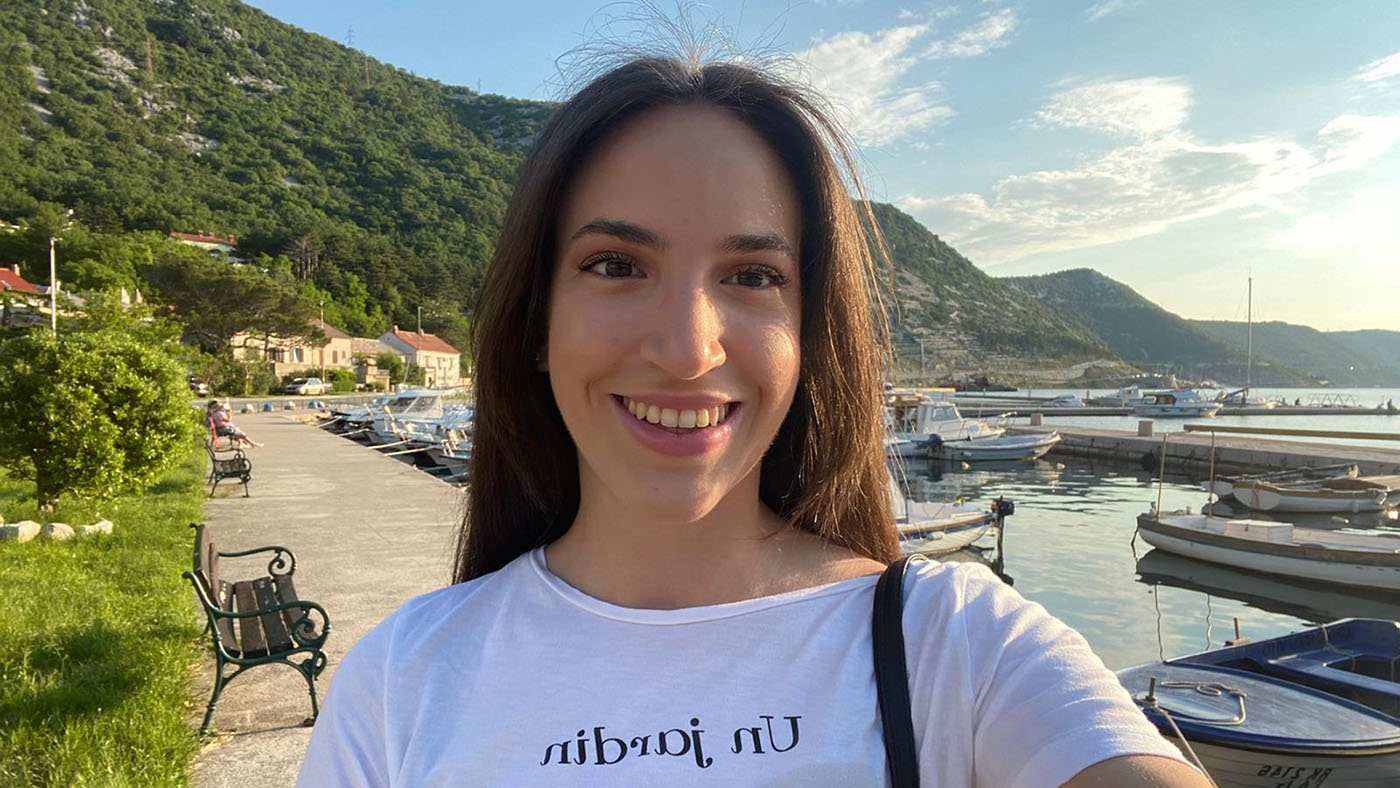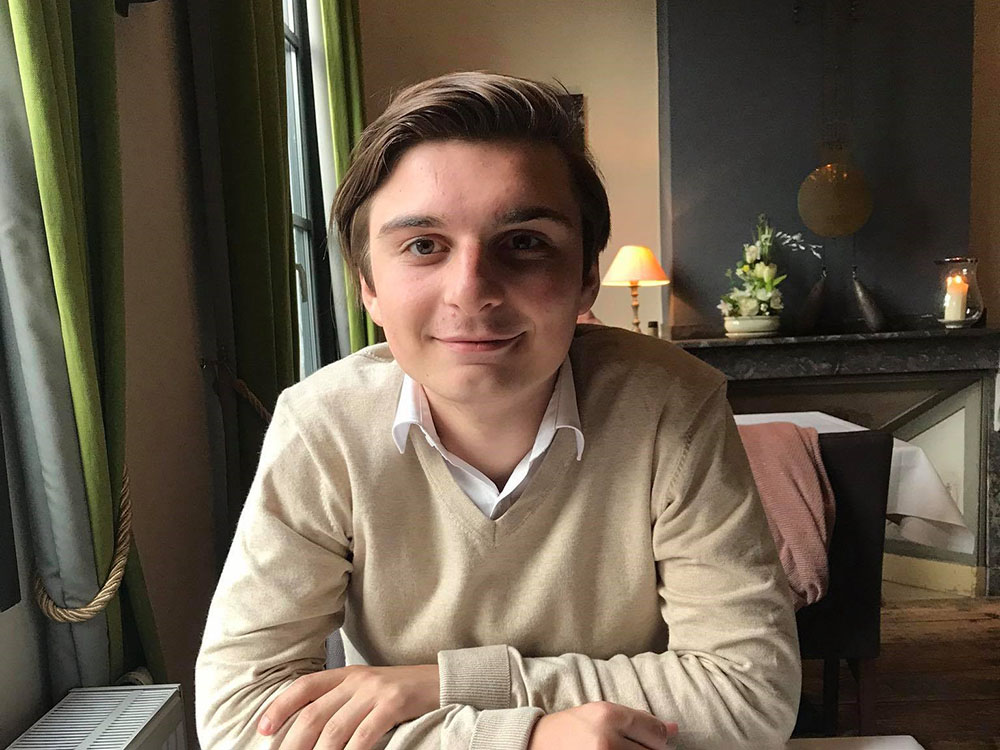
© Privat
Getting to Know Other European Universities via YUFE
A pilot project is currently enabling 100 students to take part in classes at several universities in Europe.
Together with nine universities and four non-academic partners, the University of Bremen is creating a European university. The Diploma Supplement Track (DST) pilot project began in the summer semester and a total of 100 students from the ten YUFE universities are taking classes at the partner universities. We paid a visit to a class at the Languages Centre of the Universities in the Land of Bremen (SZHB).
Tuesday, 3 p.m.: Jelle Schuermans and Lorena Zavidić have logged into their German class in Bremen via Zoom. Jelle is taking the class in Belgium, where he studies law at the University of Antwerp. Lorena is a physiotherapy student at the University of Rijeka (Croatia). The other participants of the A1-level class log in from Italy, Spain, Great Britain, and Poland. Accusative / dative prepositions are on the teaching plan this afternoon and sentences like the following are practiced: “Das Bett steht vor der Lampe.” Or in English: The bed stands in front of the lamp. Then, the teacher, Sophie Lahr-Eigen, plays an audio excerpt for the group. The atmosphere is relaxed and everyone is paying attention. It may be the case that the six class participants don’t actually know each other but they have one thing in common: They are all some of the first students that are taking part in the Diploma Supplement Track (DST) program of the YUFE network. The abbreviation stands for Young Universities for the Future of Europe.
With the DST program, the alliance is taking first steps to gather experience for its first two-year course that is to be offered and which can be recognized as contributing to the degree programs of the students in some cases. The aim of YUFE is to create a study program with a European qualification in the long term. In the DST program, it is possible for students to take classes from the other nine partner universities - of course only digitally this summer semester. They are able to put together their own schedule and chose from academic classes from all ten universities that are offered in a special catalog. The alliance even developed a virtual campus - or rather a virtual learning platform - especially for this purpose.
As well as taking the German class at the languages center in Bremen, Jelle also has a place in the English-language seminar “Multinational Enterprises” offered by the Faculty of Business Studies & Economics at the University of Bremen. The law student likes what is on offer. Lorena is also taking two classes at the University of Finland alongside the language class in Bremen. Both of them don’t mind that the classes do not count towards their regular degrees. “That’s not that important,” says Lorena. Jelle adds: “Thanks to YUFE, I am able to improve my English and German and get to know other European universities and students. That’s great – the network has a great deal to offer.” Both are already looking forward to a proper stay at YUFE universities when they are able to travel again.

© Privat
Registration for the classes for the coming winter semester has been open since the beginning of May. For the first time, it is planned that not only virtual classes are offered but also in-person classes on site, if the local COVID regulations allow for this.
“We Can All Learn a Great Deal from Each Other”
The German class is only one of many classes offered to YUFE students by the Bremen language center. “They also like to use our language cafés,” says Friederike Weiß, who coordinates the classes. In the cafés, you meet weekly in order to chat freely and practice language skills and they are open to all students. There is also a tandem system where YUFE students can network with fellow Bremen students. “What we offer is growing thanks to the alliance,” says Weiß. The digital classes enable virtual mobility for students. “We definitely want to keep that.” Additionally, Weiß and her colleagues have other ideas - for example, hybrid formats that take place in person and digitally or also language classes and cafés for staff from the nine partner universities. Weiß is in contact with the other language centers of the YUFE universities. “We can all learn a great deal from each other,” she states. The University of Eastern Finland is offering interesting further training opportunities, for example. “The colleagues there are very advanced with their digital learning formats and that’s motivating.”

Offers for Staff and Regional Networking
YUFE is not only attractive for students. The alliance offers exchange and further training opportunities for staff from academia, administration, and technical fields. The first YUFE post-doctoral researcher posts have already been filled and a further round of job advertising will commence in the fall. Additionally, there are digital events and further training sessions on offer for all university staff. When it is possible to travel again, exchange trips for all are to be possible. YUFE will connect the towns and regions involved, as well as promote cooperation and communication. The EU, the DAAD, and Bremen State are funding the alliance.
More Informations:
Read about the Bremen YUFE student Jessica Winter: The European
You can read additional reports from YUFE students here.